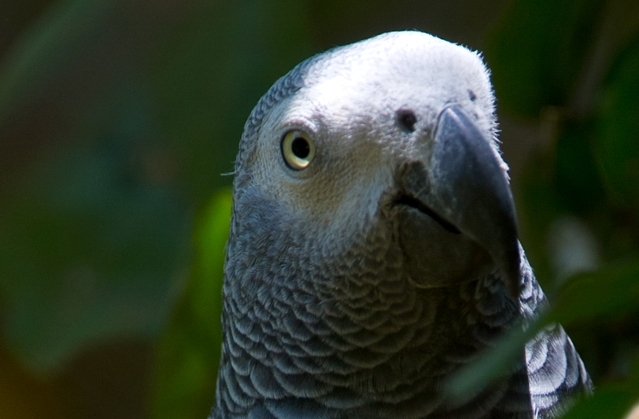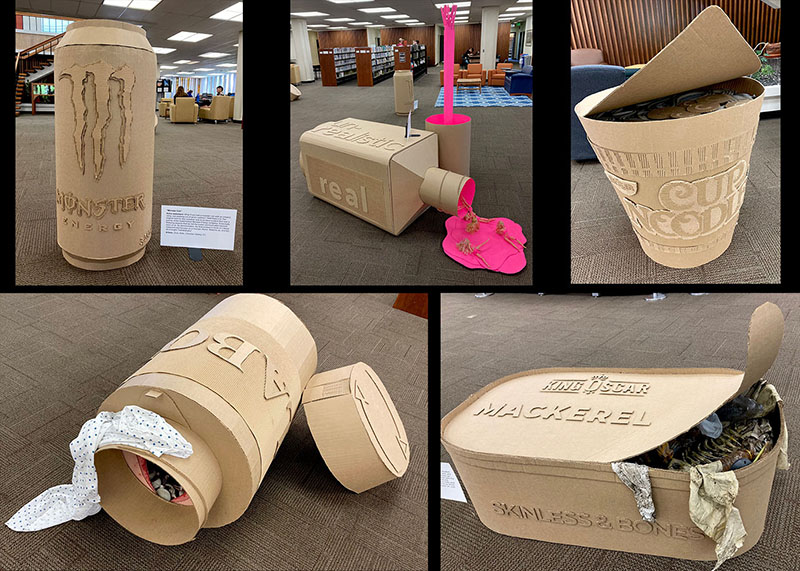Page 2 • (40 results in 0.043 seconds)
-

TACOMA, WASH. (Oct. 6, 2017)- When George and Helen Long reached out to Pacific Lutheran University 10 years ago, all they knew was that they wanted to support the sciences. “George sort of felt like he owed his success and his career to PLU,” said…
writing content for the nonprofit’s website. Her beat was technological solutions and global education. She wrote pieces about artificial intelligence as a solution to poverty, and the education of refugees to name a few. This sort of research-based, nonfiction writing is Hurtt’s comfort zone. In her junior year she switched majors from biology to English literature, making one of the biggest jumps between academic disciplines. But her experience in analytical writing was one of the reasons she
-

Inauguration festivities set to begin Sept. 4 To celebrate the installation of PLU’s 13th president , Thomas W. Krise, numerous public events are being planned in September, beginning with the opening convocation and inauguration ceremony, set for 8:45 a.m. on Tuesday, Sept. 4, in Olson…
the new artificial athletic field at 4 p.m. on Friday, Sept. 7 vs. Trinity Lutheran and on Saturday, PLU football hosts rival sister school CLU at Sparks Stadium at 12:30 p.m. Two noted speakers will come to PLU as part of the inauguration festivities. Luis Alberto Urrea, author of “Into the Beautiful North,” will be on campus on Sept. 13 at 7:30 p.m. to discuss his novel that was the focus of PLU’s Common Reading Program this year. Larry Rasmussen, professor emeritus of social ethics at Union
-

Shane Gutierrez takes a corner kick at PLU’s new soccer complex. Photo by John Froschauer. Fields of Dreams Changes to PLU’s athletic facilities will improve not only the student-athlete experience, but the experiences of all students By Steve Hansen In many ways, the season-opening 4-2…
glistening in the distance, and the evergreen firs looming just south of the soccer field. And the grass was green. Really green. Artificial-green green. For the women’s soccer players who were the first athletes to officially compete on the synthetic-surface sports field, that color couldn’t have been more beautiful. http://www.youtube.com/watch?v=9lklxHZPURw The lighted multi-purpose field, on which the men’s and women’s soccer teams will play their home matches, is just one part of a long list of
-
The ethics of torture Is it ever OK to torture someone?What if they have information that might prevent another 9-11? Or prevent a death of someone you know? And what exactly is torture?These prickly questions will be addressed at a forum sponsored by the Philosophy…
gathering. “He’s going to be asking, in intelligence gathering, are there circumstances where it’s okay to use torture?” Kaurin said. Kaurin will be looking at the rules soldiers follow when deciding whether to torture, or not. And yes, there are rules on this, she said. “I will be looking at it logistically, from a soldier’s perspective,” she said. “Is there a way to torture ethically, consistent with the rules of war?” The Geneva Convention expressly forbids the use of torture, she said. But the Bush
-

An African Grey Parrot takes stock of a photographer. (Photo provided by PLU Prof. Charles Bergman.) Free as a bird — at last PLU Professor and Student Journey to Jane Goodall’s Famed Sanctuary for First-Ever Release of Rescued African Grey Parrots By Barbara Clements, Scene…
dinner one night at the sanctuary when he decided to ask the 79-year-old primatologist whether she liked parrots. The answer, of course, was yes. She had wanted one as a child after seeing Dr. Dolittle and its macaw, Polynesia. Around the campfire, Goodall told stories of the parrots’ intelligence, describing an African Grey Parrot in New York City with a vocabulary of 1,600 words—not far behind the average working vocabulary of most people. As for the fate of the 17 birds that finally—literally—flew
-
Originally published in 2005 For two weeks of March, 2000, in the vast jungle along Mexico’s southern border with Belize, I joined a team of biologists and hounds in chasing and capturing a wild jaguar. I was in Mexico as a Fulbright Scholar. It took…
appreciation for the wonders of animals and their complex behaviors. Also, the new field of cognitive ethology, which studies animal mentality as a kind of behavior, is changing our view of the animal mind. While it is a field with many challenges and controversies, we seem to be in the process of an almost revolutionary advance in our understanding of animal intelligence. Photo taken during a J-term course in Ecuador in 2015 by Quinn Huelsbeck (‘16) A good overview to this field can be found in Colin Allen
-

On a visit to a U.S.-funded mine-risk education seminar in Kayah State, Jerry White stands with fellow landmine survivors. U.S.-supported mine-risk education in Burma can serve as a platform to build trust between these armed groups, the military and the Burmese government. Photo courtesy of…
eventually led to sharing the 1997 Nobel Peace Prize with the group of individuals on International Campaign to Ban Landmines. His 1997 trip to Bosnia-Herzegovina with Diana, Princess of Wales, was the event he credits with putting the spotlight on the plight of hundreds of thousands of victims wounded by mines worldwide. White remembers the former princess, who died a year after he met her, as a woman of natural charisma and keen intuition and intelligence. “It was crazy to be hit in the face with that
-

Pacific Lutheran University is excited to welcome Dayna Baumeister, a professor at Arizona State University who holds a doctorate in organismic biology and ecology, to deliver the 2022 Rachel Carson Science, Technology and Society Lecture. Baumeister will present “(Re)Buiding a Thriving World–Mentored By Nature’s Genius”…
Genius” on March 1 at 6:30 p.m. in the Karen Hille Phillips Center at PLU. Baumeister is co-founder of Biomimicry 3.8, a bio-inspired consultancy offering biological intelligence consulting, professional training, and inspirational speaking. Her work has been critical to the biomimicry movement, establishing it as a new and innovative practice and a philosophy to meet the world’s sustainability challenges. She has helped more than 100 companies consult the natural world for elegant and sustainable
-

This exhibit of student work is based on an art class assignment in which students were given everyday objects and tasked with replicating and constructing forms using sheets and rolls of cardboard, self-adhesive paper tape, and hot glue. The project covered scale, mathematical reasoning, armatures,…
sculpture, we brainstormed connotations associated with a cup of noodles, specifically its cheapness and the poor quality of its taste. For the noodles, we utilized gray styrofoam tubing to display the disgusting, artificial quality of the noodles. The grayness of the noodles makes it appear that it’s rotting or sewage sludge. The brown pennies scattered across the noodles show how underpriced the food is. What you eat is what you pay for, in a sense. Our sculpture creates awareness of how unhealthy
-

Pacific Lutheran University Professor of Biology Amy Siegesmund received the American Society for Microbiology’s 2023 Carski Award for Undergraduate Teaching. The award recognizes a university educator for outstanding teaching of microbiology to undergraduate students. What I love about teaching microbiology is that I get to…
metacognition and learning; the use of self-assessment to increase metacognition; and student theories of intelligence, learning, and failure. Siegesmund is an alumnus of the National Science Foundation Biology Scholars Research Residency and has received PLU faculty excellence awards in service (2019-20) and teaching (204-15). “During her time at PLU, Dr. Siegesmund has proven herself to be an incredibly dedicated, passionate and effective teacher,” said Chair of Biology Matt Smith. “She challenges her
Do you have any feedback for us? If so, feel free to use our Feedback Form.


